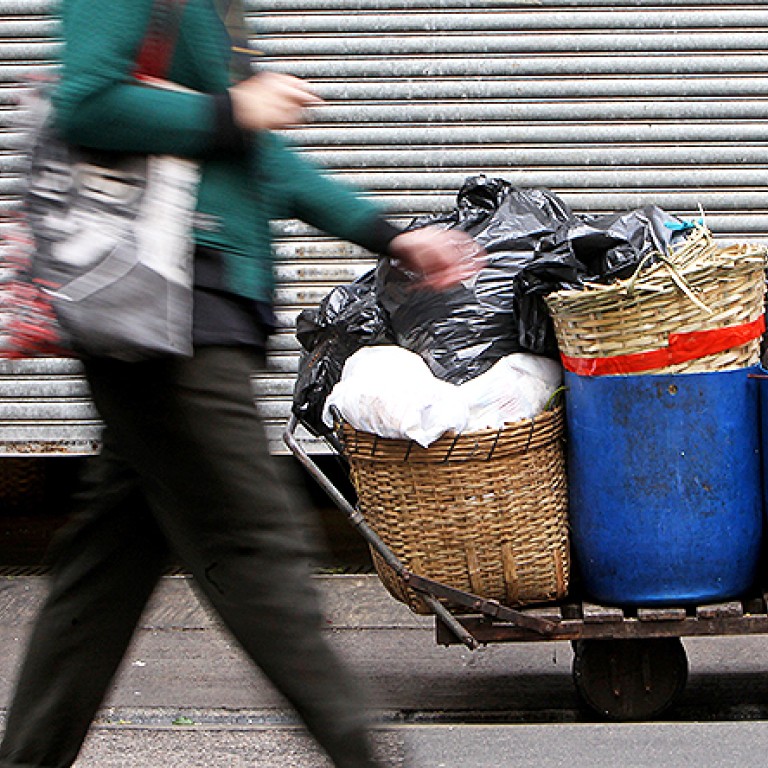
Waste charging needs community support
Edwin Lau says it should be part of a plan that also promotes recycling
Armed with a pen and notebook, Chief Executive Leung Chun-ying has been visiting community halls to hear public opinion ahead of his policy address. Most of the time, the feedback he got was one grievance after another.
We have been offering our views to the government since before the handover on several key environmental issues. We hope that, one day, officials will consider seriously our suggestions for how to tackle the poor roadside air quality, energy wastage, and the never-ending growth of waste.
We offer no crazy ideas, but pragmatic policy options to drive behavioural change in companies and in individuals, from the grass-roots level to the wealthy.
If the former administration had adopted our ideas and implemented them in stages, the Leung administration would be harvesting the results by now, instead of having to count how many votes it can secure in the Legislative Council and begging district council members to support the landfill expansion plan.
At a recent event to promote waste reduction for public housing tenants, a Sha Tin district councillor asked the public not to support the proposed charging policy. It was sad to hear a district leader urging his voters not to support a very effective policy that will tackle our waste problem; every city in the world today has to take a holistic approach to waste management, starting with the most effective one - avoidance.
To earn more community support for landfill expansion, Leung must present a basket of solutions, which must include a plan for volume-based waste charging, as this is most effective in encouraging people to reuse and recycle.
Meanwhile, the policy should avoid adding to the financial burden of low-income people. And this can be achieved by, for example, providing subsidies for them to buy garbage bags. If they do their part to reduce waste, they would need to buy fewer bags every month and thus may have a bit of money saved.
Moreover, the government needs to lend its support to the recycling industry, especially to subsidise low-value recyclables such as timber, glass and food waste, which would otherwise continue to be dumped in our landfills.
Food waste is not suitable for incineration due to its high moisture content. The government has only planned for two small-scale organic waste treatment plants that can treat 500 tonnes per day in total. However, we generate around 3,600 tonnes of food waste every day, so 3,000 tonnes would still need to be disposed of. Most of that would probably be incinerated as district councillors strongly oppose dumping it in landfills.
This is a pity. Food waste is an energy-rich resource that can be turned into either animal feed or biogas to power engines or for heating. Burning food waste is also likely to generate hazardous dioxins.
Therefore, the government should lend its support to the private sector to build and operate food-waste treatment plants, possibly in all districts. This would achieve a much higher percentage of food waste recycling than if it were sent to an incinerator.
We don't blindly object to every government proposal, but we can only support the government if officials are committed to taking bold steps and are willing to roll out, as quickly as possible, comprehensive strategies that uphold the holistic waste management principle.
Taiwan experienced the pain of overflowing waste in the 1980s and early 1990s. Now, its officials are proud to share with others their success in cutting by 60 per cent the amount of waste dumped in landfills.
The chief executive should take note: Environment Minister Wong Kam-sing has also visited Taipei to learn from them.

